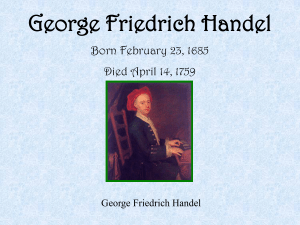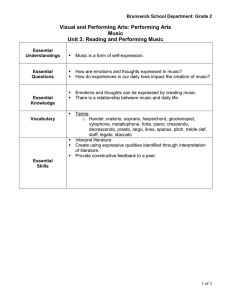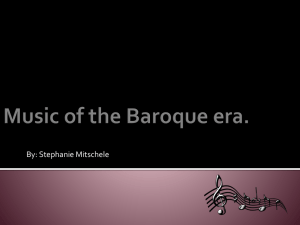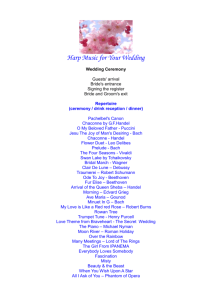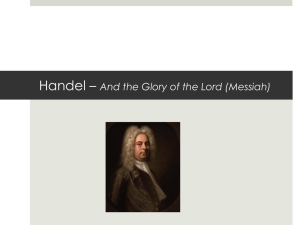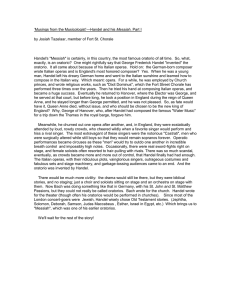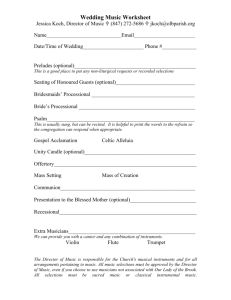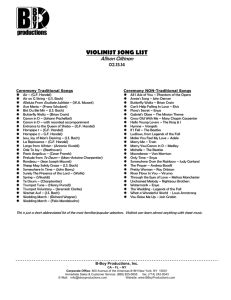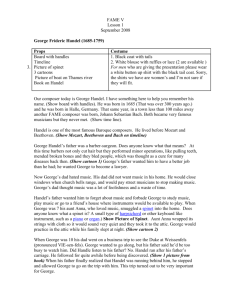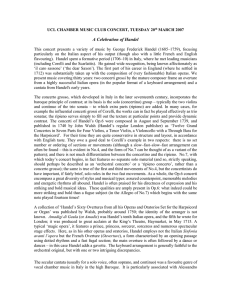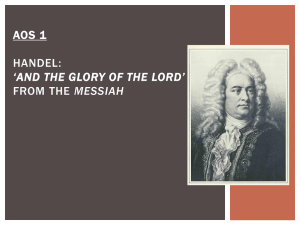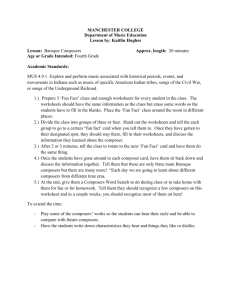George Handel
advertisement
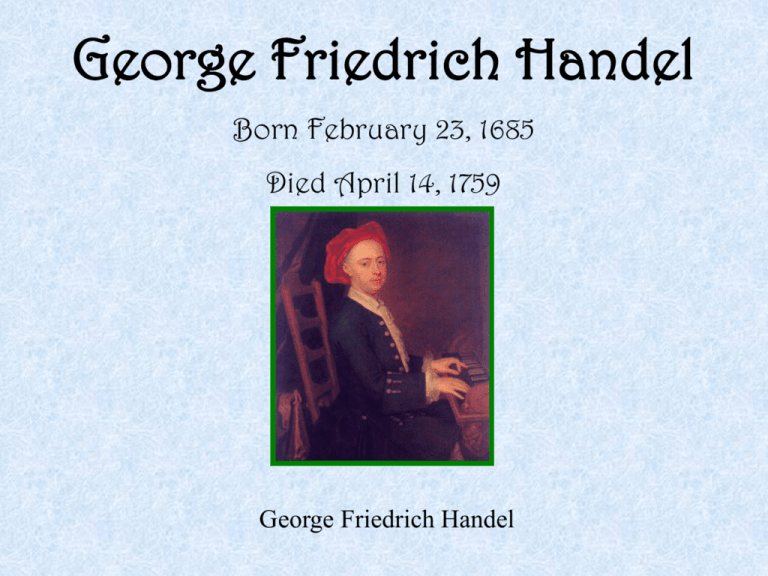
George Friedrich Handel Born February 23, 1685 Died April 14, 1759 George Friedrich Handel George Handel was born in Halle, Germany on February 23, 1685. His father was a 62 year old barber-surgeon. (In those days,the local barber often performed minor surgery or dental work.) He hated music so much that he would close the windows when church bells rang, and even hated to hear the lullabies that were sung to his son. Because he felt so strongly about music, Dr. Handel did not want his son exposed to music at all. Instead he insisted that he become a lawyer, and began his son’s studies toward that end at an early age. Early clavichord It was the custom in wealthy families to have either a hired person, or a relative who needed a home, care for the children and provide for their everyday needs. George was very fortunate to have his aunt Anna, his young mother’s sister, to care for him. She made sure that he was exposed to music, and for his seventh birthday,even bought him a clavichord, hid it in the attic where Dr.Handel could not hear, and let George play it secretly for a while each day. George was soon playing melodies he made up himself, as well as tunes he had heard before. When George was about 7 or 8, his father took him along on a visit to the Duke of Weisenfels. George was fascinated with the music in the court chapel. The organist let him try the huge pipe organ, and was amazed at what the small child could do. When the Duke found out that Dr. Handel had refused to give his son lessons, he persuaded him to let the boy study music with the chapel organist at Halle, Friedrich Zachau. By the age of 11, he was playing the organ, violin, oboe, and harpsichord. George became famous for his operas, as well as other types of music. He went to England, and while there, composed a piece called “An Ode for the Queen’s Birthday. She was so impressed that she granted him a salary of several hundred pounds per year. A little later, he composed “Water Music” for a festival on the Thames river. The King liked it so well he paid Handel a salary for the rest of his life. As his style of opera became less popular in England, he turned to writing oratorios, which were religious pieces to be sung in church. His most famous is “The Messiah”, which is still sung today, especially at Christmas. While composing it, he lived in this house in London. Handel began losing his sight, but still continued to compose and play the organ until his death on April 14, 1759. He was buried in Westminster Abbey, in London. The End
